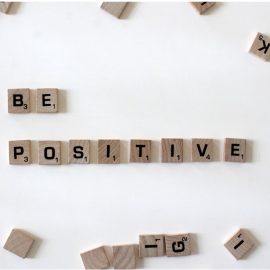

This article gives you a glimpse of what you can learn with Shortform. Shortform has the world’s best guides to 1000+ nonfiction books, plus other resources to help you accelerate your learning.
Want to learn faster and get smarter? Sign up for a free trial here .
Is anything negative going on in your life right now? Is your body trying to tell you something? Are you holding on to any regret or resentment?
Radical Acceptance is a practice in which we acknowledge what we’re experiencing—positive or negative—and welcome it. It’s a powerful tool that allows us to be fully present in each passing moment. It helps us avoid getting stuck in our own heads.
Continue reading for eight Radical Acceptance exercises based on the book of the same name by Tara Brach as well as books by Eckhart Tolle and Ryan Holiday.
Radical Acceptance Exercises
In her book Radical Acceptance, Tara Brach, a practicing psychologist and devout Buddhist, discusses how we can use the meditative practice of Radical Acceptance to live our lives more fully by always bringing our full attention to the present moment and accepting it for what it is. She explains how we get trapped in the stories we tell ourselves and how Radical Acceptance can bring us out of the trance.
The first five Radical Acceptance exercises below are based on principles presented in Brach’s book. The remaining exercises are based on concepts in Eckhart Tolle’s books A New Earth and The Power of Now and Ryan Holiday’s book The Obstacle Is the Way.
Exercise 1: Check in With Yourself
Recognizing habitual thought patterns and worries is the first step toward accepting yourself. As you do this, make sure not to judge yourself or your responses to these questions; just accept them for what they currently are.
- Is there something about your body that you don’t accept? This could mean something about your appearance, your fitness, or your general health, such as blaming yourself when you get sick. What is it, if anything?
- Is there something about your mind that you don’t accept? For example, do you tend to tell yourself that you’re not smart enough, or that you’re boring, or do you scold yourself for having mean-spirited or inappropriate thoughts about others? What about your mind don’t you accept, if anything?
- Is there something about your moods and emotions that you don’t accept? Are you afraid of your negative feelings, or critical of yourself for being impatient or irritable? What about your feelings don’t you accept, if anything?
Exercise 2: Practice the Pause
While you’re pursuing some goal-oriented activity like working, cleaning, or eating, try taking a moment to pause. Stop what you’re doing, close your eyes, and take a few deep, slow breaths. Try to be aware of what you’re experiencing without any thoughts of what you’re going to do about it.
- What physical sensations are you aware of during this pause? Are you tense, nervous, or restless?
- What thoughts are you experiencing? Are you still thinking about your task, is there something else occupying your thoughts, or is your mind truly still?
- What emotions are you experiencing? Do you feel like you’re being pulled back to your task? What’s it like to simply sit with your experience, rather than trying to do something about it?
Exercise 3: Check in With Your Body
In this Radical Acceptance exercise, sit comfortably, close your eyes, and take a few deep breaths. Starting with the top of your head, do a slow and thorough examination of your entire body. Don’t look with your eyes; instead, simply allow your consciousness to inhabit each part of your body fully and consider what it’s telling you, without trying to judge or change any part of it.
- What in particular stood out to you as you did your check-in?
- What do you think those sensations might be trying to tell you?
Exercise 4: Awakening Compassion
We can have compassion for others or for our own suffering. Sit in a comfortable position that allows you to be both relaxed and focused, and bring a painful experience to mind. The pain can be your own or that of someone close to you—a family member, a friend, or even a pet.
- What’s the experience you thought of?
- What prayer or expression of compassion comes to mind when you think about it? The statement could be as simple as “I care about your pain,” or “May you be freed from your suffering.”
- Now consider all of the living beings in the world that are experiencing that same type of pain. Meditate on the realness of that suffering; breathe in their pain, and as you exhale, release it to your higher power or awareness of choice. As before, what prayer or compassionate expression comes to mind?
Exercise 5: Do a “Forgiveness Scan”
Forgiving yourself is an important practice, but you may find that sometimes you don’t even know what you need to forgive yourself for. Before going to bed for the night, take some time to remember the day and scan your feelings to see if you’re holding anything against yourself from the day. Examples might be a mistake you made at work, or something you regret saying to someone else.
- What are you regretting from the past day?
- What, if anything, is blocking you from forgiving yourself for it?
- If you can’t forgive yourself, can you forgive the feeling and let it be what it is?
Exercise 6: Practice Acceptance, Enjoyment, & Enthusiasm
In A New Earth, Eckhart Tolle asserts that human consciousness is trapped in a state of dysfunction because we are controlled by our ego, which drives us to seek fulfillment by owning things and feeling superior to others. This has led to harm to both our planet and our species because of consumerism, ideological wars, pollution, and more. Tolle argues that we must undergo an evolution of consciousness if humanity and the earth are to survive. A New Earth aims to teach people how to do this: how to elevate their consciousness by becoming aware of their ego-driven thought and behavior patterns, and how to overcome those patterns.
Tolle argues that our ego prevents us from being mindful by making us see the present moment as a bridge, barrier, or antagonist. However, if we’re able to simply accept the things we don’t enjoy without resistance and do more of the things we do enjoy, we can experience peace and enthusiasm in our lives. The following Radical Acceptance exercise is based on these ideas.
- What’s something you do in your day-to-day life that you find boring or dreadful? For example, do you hate going to work or doing the laundry?
- If the task you identified is unavoidable, is there anything you can do to help you stay present? For example, can you listen to music or complete other tasks that may be distracting you beforehand?
- Now identify something that you enjoy doing. How often do you do this thing, and are you able to make more time to do this activity? The more time you spend doing the things you enjoy, the easier it will be for you to stay present.
Exercise 7: Accept the Unpleasant
Many of us spend our lives searching for peace, joy, and fulfillment. We look for it in different ways: through accomplishments, relationships, experiences, and material possessions. The Power of Now by Eckhart Tolle proposes that the only way to find true peace and fulfillment is through being solely and intensely present in each moment. The more we live in the Now, the more we are able to connect with our true selves and experience life fully, without extraneous thoughts and speculations clouding our minds and altering our lens of the world.
Tolle writes that highs and lows are inevitable in life, and you must accept both to remain present and be at peace. Use this Radical Acceptance exercise to work toward accepting something undesirable situation in your life.
- Describe something in your current life situation that you are unhappy or dissatisfied with.
- How have you reacted to this situation so far? Perhaps you have made a plan of action, felt hopeless and overwhelmed, or looked to others for advice and sympathy.
- Is this situation one that you can leave or change? Or is it something you must accept (at least for the time being)?
- If you could take action (by leaving or changing the situation in some way) but haven’t, what do you think is holding you back? Or, if you must accept the situation but have not yet, why do you think you are resisting surrender?
- Going forward, how can you approach this situation in a way that you will remain present?
Exercise 8: Accept & Celebrate
A cult classic among professional athletes, The Obstacle Is the Way is a guidebook to solving any problem preventing you from achieving ambitious goals. It’s based on the tenets of Stoicism—an ancient Greek philosophy promoting calm rationality in any situation. Ryan Holiday argues that by choosing to view your obstacles in an empowering way, you can turn them into your greatest assets.
Holiday writes that, when you’re facing a situation you can’t change, the only thing you can do is accept it. Once you do so, you can very likely find some benefit. Though you don’t get what you want, you gain something else worth celebrating. The following Radical Acceptance exercise is based on these ideas.
- Describe a negative situation in your life that you can’t change (for example, being required to share a small workspace with a coworker you dislike).
- What benefits can you gain from this situation? Name as many as you can think of. (For example, you might get more work done next to a coworker you dislike since you won’t want to socialize with them, and you’ll get many chances to practice dealing patiently with someone who aggravates you.)
- Remember: Feeling bad about something you can’t change is pointless while appreciating benefits and opportunities feels good and motivates you to act. What steps can you take to accept this situation and remind yourself of its benefits? (For example, you could start keeping a covert list of these benefits on your desk to read whenever you feel frustrated with your coworker.)

Want to fast-track your learning? With Shortform, you’ll gain insights you won't find anywhere else .
Here's what you’ll get when you sign up for Shortform :
- Complicated ideas explained in simple and concise ways
- Smart analysis that connects what you’re reading to other key concepts
- Writing with zero fluff because we know how important your time is






